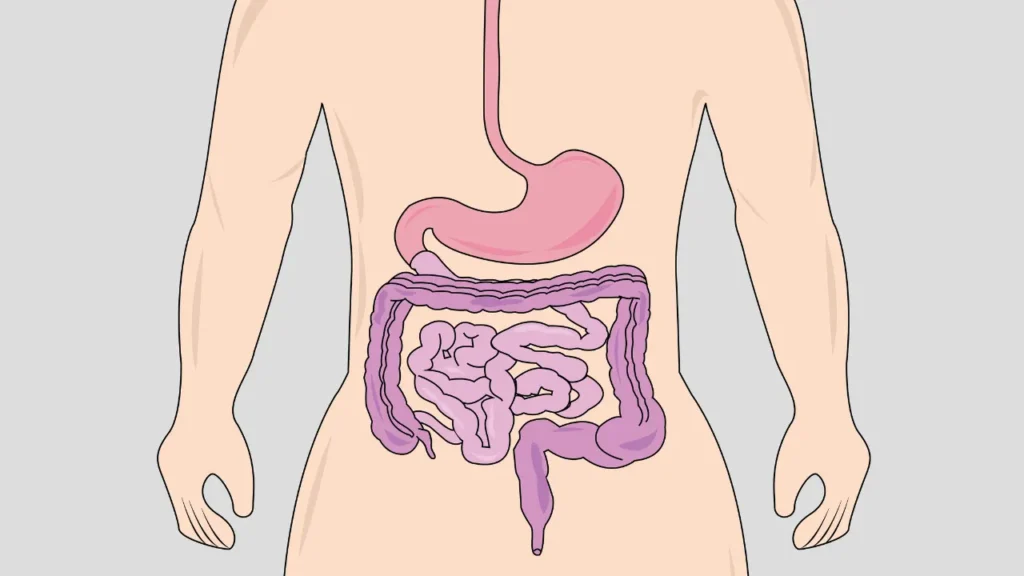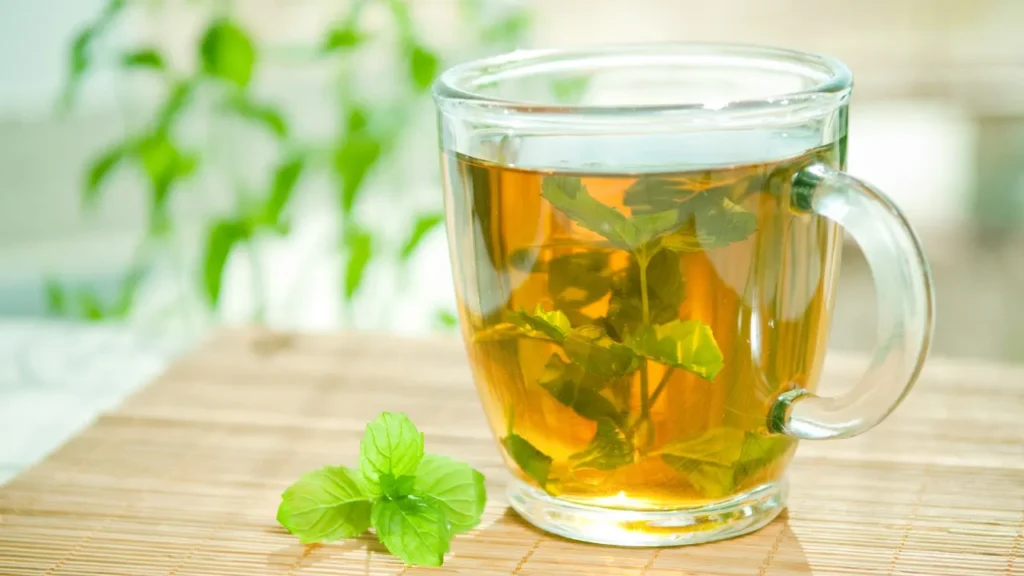Mentha spicata, commonly known as spearmint, is a perennial herb in the Lamiaceae family that is used in culinary and medical applications worldwide due to its fragrant qualities. The nootropic community has been paying attention to spearmint lately because of its potential to improve cognitive abilities. In order to provide guidance for the safe use of this nootropic supplement, this article explores the scientific basis of spearmint’s chemistry, health advantages, ideal dosage, adverse effects, possible substance interactions, and its physiological mechanisms.
You May Also Like:
Dr Emil Nutrition Lion’s Mane Reviewed: A Leading Nootropic Mushroom Product
Spearmint: Benefits, Dosage, Side Effects, Drug Interactions, and Other Important Information is an original (NootropicsPlanet) article.
Nature of Spearmint
Spearmint is a perennial herb that is prized for its pungent, serrated leaves and energizing scent. It is grown all over the world for its aromatic, culinary, and medicinal qualities and is a member of the Lamiaceae family of mints. The plant is known for its square stems, pink or white flowers, and capacity to spread quickly under the right circumstances. It grows well in temperate areas. This plant contains different components including limonene and carvone. The essential oil derived from spearmint leaves is used for a variety of purposes, from ancient and modern medicine to flavor enhancers for food and beverages.
Health Benefits of Spearmint
Spearmint has been associated with a wide array of health benefits, supported by both traditional use and scientific research. These benefits span cognitive enhancement, digestive health, hormonal balance, and antioxidant protection, making spearmint a versatile herb in promoting overall well-being.
Cognitive Enhancement: Spearmint has received attention for its ability to enhance cognitive functions such as memory, focus, and mental clarity. Studies indicate that spearmint extracts can improve cognitive performance, particularly in older people with age-related memory impairment. The improvement in cognitive performance is due to spearmint’s antioxidative and anti-inflammatory qualities, which protect the brain from oxidative stress and inflammation, both of which can impair cognitive ability.
Antioxidative Protection: The high phenolic content of spearmint has considerable antioxidative properties, helping to neutralize free radicals in the body. Spearmint’s antioxidative components, including rosmarinic acid and flavonoids, help to protect against oxidative stress. This antioxidative effect can help avoid cellular damage, lower the risk of chronic diseases, and improve general health.
Digestive Health: Spearmint has traditionally been used to treat digestive issues such as bloating, gas, and nausea. Its carminative characteristics help to expel gas from the stomach and intestines, reducing discomfort and improving digestive health. Furthermore, spearmint tea is widely consumed to relieve stomachaches and aid digestion due to its soothing effect on the gastrointestinal tract.
Hormonal Balance: According to research, spearmint may alter hormonal balance, especially in women with polycystic ovarian syndrome (PCOS). Spearmint tea has been proven in studies to help reduce levels of androgens, such as testosterone, which are typically increased in PCOS, potentially easing the symptoms of the condition.
Anti-inflammatory Effects: Aside from its antioxidant capabilities, spearmint has strong anti-inflammatory properties. These qualities make it useful in treating inflammatory illnesses such as arthritis and some skin ailments. Spearmint, which inhibits inflammatory pathways, can help reduce inflammation and alleviate pain.
Spearmint’s broad spectrum of health benefits, from enhancing cognitive functions and providing antioxidative protection to supporting digestive health and hormonal balance, underscore its value as a natural, therapeutic herb. Its incorporation into a balanced diet and lifestyle can contribute to improved health and well-being, highlighting spearmint’s significance in both traditional and contemporary wellness practices.

Chemistry of Spearmint
The potential of spearmint to enhance cognition and promote overall health is largely due to its intricate chemistry. The primary components of the chemical profile of spearmint are volatile oils, phenolic acids, terpenoids, and flavonoids. Each of these components contributes in a unique way to the medicinal qualities of the herb.
Most of the therapeutic qualities and unique aroma of spearmint stem from its volatile oil component. The essential oil is mostly composed of carvone, limonene, and 1,8-cineole. Carvone, the primary constituent, is very intriguing because of its anti-inflammatory and antioxidative qualities. These qualities are crucial in combating oxidative stress and inflammation, which are major risks to cognitive function.
Flavonoids and phenolic acids, which scavenge free radicals and maintain cellular integrity, further bolster the antioxidant defense of spearmint. On the other hand, terpenoids enhance the herb’s anti-inflammatory qualities, improving its overall capacity to support mental health and general well-being.
Physiological Mechanism of Action of Spearmint
The physiological mechanism by which spearmint enhances cognitive function is complicated, reflecting the complexity of its chemical ingredients. At the forefront, spearmint’s antioxidative capabilities, primarily stem from carvone and other phenolic chemicals, play an important role in reducing oxidative stress in the brain. Oxidative stress is characterized by an imbalance of free radicals and antioxidants, which causes cellular damage and a loss of cognitive function. Spearmint protects brain cells from oxidative damage by neutralizing free radicals. This allows for the proper functioning of brain cells.
Furthermore, spearmint has considerable anti-inflammatory properties, lowering brain inflammation, which is frequently connected with cognitive decline and numerous neurodegenerative illnesses. Inflammation in the brain can disrupt neurotransmission and neuron health, influencing cognitive processes including memory and learning.
Another important feature of spearmint’s impact is the control of neurotransmitter activity, namely the inhibition of acetylcholinesterase. This enzyme is involved in the breakdown of acetylcholine, a neurotransmitter important in memory formation and learning. By blocking acetylcholinesterase, spearmint increases acetylcholine levels in the brain, improving memory, attention, and overall cognitive ability. Thus, it is safe to say that these combined effects of antioxidative, anti-inflammatory, and neurotransmitter modulation emphasize spearmint’s nootropic properties.

Optimal Dosage of Spearmint
The appropriate dosage of spearmint for cognitive enhancement depends on a number of factors, including age, health status, and individual sensitivity to the plant. Clinical trials have used a variety of dosages, typically 900 to 1,800 mg of spearmint extract per day, to demonstrate improvements in cognitive performance with minimal side effects. However, it is best for individuals to begin with a smaller dose and gradually increase it to determine tolerance and effectiveness.
Side Effects of Spearmint
Spearmint is generally regarded as safe for most individuals when ingested in quantities commonly found in food. However, in larger quantities, like those found in supplements, some people may develop mild side effects like heartburn, nausea, and allergic responses. It is also worth noting that spearmint may have estrogenic properties, making it unsuitable for people with hormone-sensitive diseases.

Potential Substance Interactions with Spearmint
While spearmint is generally regarded safe, it may interact with some drugs and supplements. Because of its estrogenic properties, spearmint may interfere with hormone therapy and contraception. Furthermore, its capacity to reduce blood sugar levels may exacerbate the effects of diabetes drugs, necessitating constant blood sugar monitoring.
Best Responsible Use of Spearmint
Those seeking to benefit from spearmint’s nootropic characteristics must take a prudent approach to supplementation. This includes following suggested dosages, being aware of potential side effects and substance interactions, and checking with a healthcare provider, especially for people who have pre-existing health conditions or are taking medication. Incorporating spearmint within a comprehensive lifestyle that includes a healthy diet, frequent physical activity, and cognitive exercises is one of the best ways to fully utilize the potential of spearmint as a nootropic supplement.
Spearmint:
Conclusion
Spearmint is known for its refreshing flavor and aroma because of its aroma and flavor. This plant has various uses in culinary and medical applications worldwide. The nootropic ability of spearmint has been bringing attention to this plant and the components that directly contribute to this effect are limonene and carvone. These two components carry antioxidant and anti-inflammatory effects which are believed to reduce the oxidative stress of the brain and prevent the onset of neurodegenerative disease.
Other than cognitive benefits, spearmint essential oil can also help to clear symptoms of nausea and indigestion. While preliminary research suggests that spearmint may offer therapeutic effects, further studies are needed to validate its efficacy and safety in various health applications. Before considering spearmint supplementation, you should consult with a healthcare provider to assess your health needs and determine the appropriateness of its use.

References:
- Spearmint Improves Brain Function. Retrieved from:https://richardallisonnutrition.com/blog/ft16rndd33xyjpfe8645n1xwyvxuba#:~:text=Spearmint%20has%20been%20found%20to,reason%20behind%20these%20cognitive%20benefits.
- Spearmint Extract Improves Working Memory in Men and Women with Age-Associated Memory Impairment. Retrieved from: https://www.ncbi.nlm.nih.gov/pmc/articles/PMC5779242/
- 11 Surprising Benefits of Spearmint Tea and Essential Oil. Retrieved from: https://www.healthline.com/nutrition/spearmint
Important Note: The information contained in this article is for general informational purposes only, and should not be construed as health or medical advice, nor is it intended to diagnose, prevent, treat, or cure any disease or health condition. Before embarking on any diet, fitness regimen, or program of nutritional supplementation, it is advisable to consult your healthcare professional in order to determine its safety and probable efficacy in terms of your individual state of health.
Regarding Nutritional Supplements Or Other Non-Prescription Health Products: If any nutritional supplements or other non-prescription health products are mentioned in the foregoing article, any claims or statements made about them have not been evaluated by the U.S. Food and Drug Administration, and such nutritional supplements or other health products are not intended to diagnose, treat, cure, or prevent any disease.


